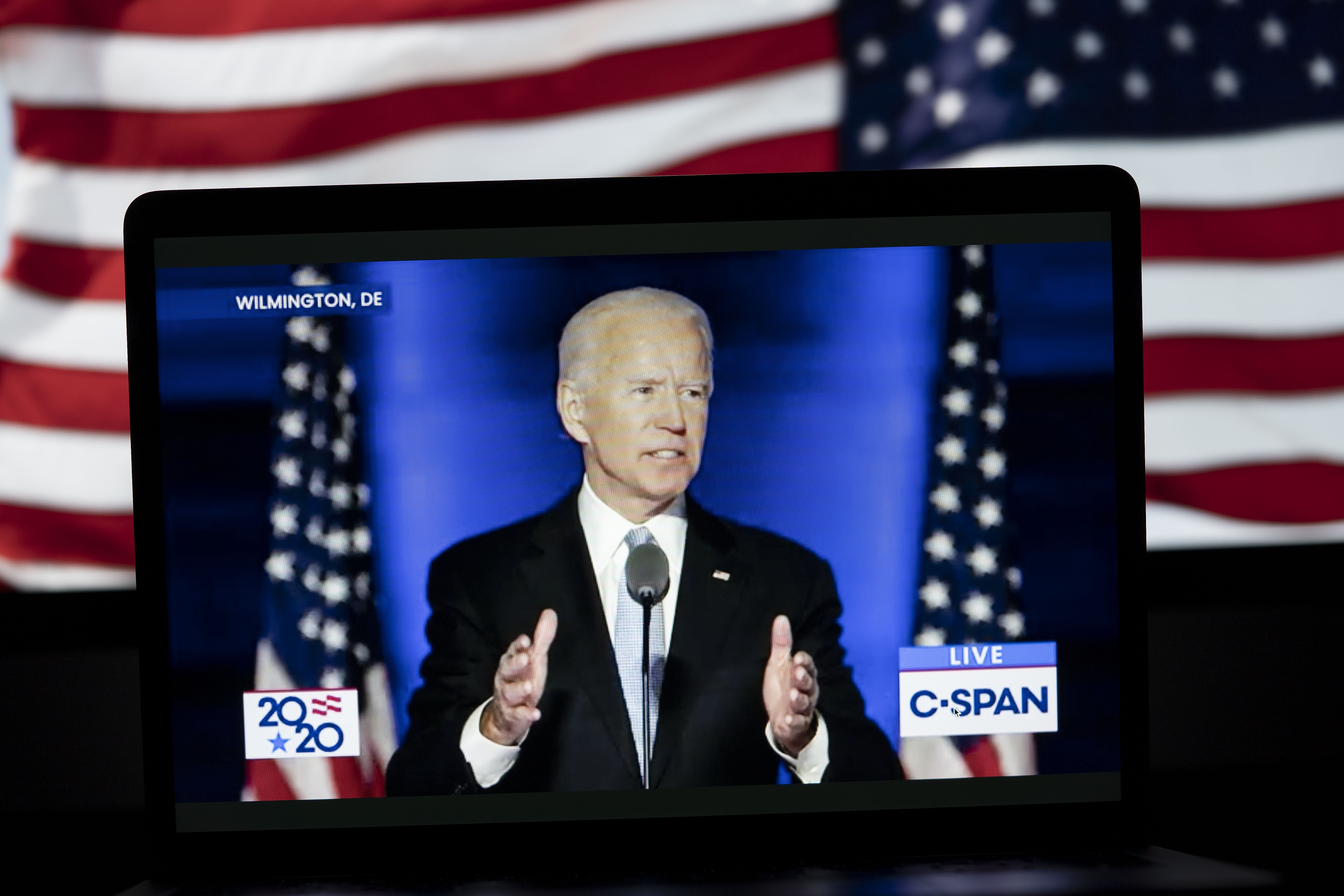What might Biden's Asian foreign policy look like?
- By Tom Fowdy
 0 Comment(s)
0 Comment(s) Print
Print E-mail China.org.cn, November 12, 2020
E-mail China.org.cn, November 12, 2020

The U.S. presidential election is seemingly over. Despite denials from President Donald Trump, Democratic candidate Joe Biden has declared victory and is looking ahead to the White House in January. With this comes an obvious shift in policy which on the back of his predecessor, will set out a new vision for America and seek to undo many of Trump's approaches to both domestic and foreign affairs. But the question is: What things will change? And to what extent?
When it comes to China, and the region of Asia as a whole, Biden's priorities will not change from the Trump administration. It will remain the primary region of focus and strategic preference, and in line with that many of the legacy policies. However, the methodologies will be different, making their outcomes less problematic and destabilizing with Biden vowing to approach issues with multilateralism, diplomacy and also stronger value sentiments than Trump. This presents a mixed bag which will come with both advantages and disadvantages.
The Trump administration redefined American foreign policy to the scope of Great Power competition, with a primary focus on China. That isn't going to change, and Biden will not have the political capital to do so. New U.S. presidents build on the legacies of their predecessors rather than aim to completely destroy them. Trump of course is the exception. The new president faces a hostile Republican Senate armed with some of the most militant China hawks, which has occasionally berated the incumbent for not being tough enough. Things will simply not go back to the way they were before — the new paradigm of "strategic competition" will continue.
But that doesn't mean everything will be the same. The Trump administration's aggressive, unilateralist, "sledgehammer" approach to China is highly likely to be discarded, as will its routine methodology of exerting "maximum pressure" on every issue. With this, the Biden presidency will disavow Trump's preferences for tariffs, trade wars, cold war rhetoric and coercive attempts to crush Chinese companies. In its place, Biden will adopt multilateralism. He will seek to engage allies more, use diplomacy, find common ground and also bin the "America first" attitude that characterized Trump's politics.
The Biden administration will also look to rebuild ties with South Korea — which were strained under Trump — and engage it as an ally. This does not mean however that the two countries will see eye to eye. South Korea seeks sanctions relief to engage in a fulfillment of a peace process with the Democratic People's Republic of Korea through inter-Korean projects. On the other hand, Biden has vowed to end the Trumpian "summits" with Kim Jong-un and may resort to a tougher position that it will not negotiate directly unless DPRK makes concessions on full denuclearization, a policy known in the Obama era as "strategic patience." This of course means giving Pyongyang a cold shoulder, which could result in new missile tests designed to pull Washington to the negotiating table. Tensions could very easily rise again. However, the Biden administration is not going to return to the "fire and fury" approach initially pursued by Trump whereby he threatened to "totally destroy the country."
For some liberal-orientated pundits and publications, Biden's victory is a godsend which apparently reverses all the problems and disruptions imposed on America's global standing by his predecessor. Many outlets have even prematurely proclaimed that the "U.S. decline" is over. But these are jumping the gun. Biden will undoubtedly move away from the worst of Trump's conduct in office. The offensive comments, the uncertainty, aggression, foreign policy by tweet and erratic nature all pushed by the incumbent will be gone, and we're glad to see them go.
However, this does not mean that the path ahead for Biden is straightforward or easy. That is not how politics works, nor is it how diplomacy works. While the newcomer to the White House will change the way things are done, that does not mean instant success in everything. The bar has been set low after all. But one thing is certain — Biden will be more predictable and avoid instigating crisis for political theater.
Tom Fowdy is a British political and international relations analyst and a graduate of Durham and Oxford universities. He writes on topics pertaining to China, the DPRK, Britain and the U.S. For more information please visit:
http://www.china.org.cn/opinion/TomFowdy.htm
Opinion articles reflect the views of their authors, not necessarily those of China.org.cn.
If you would like to contribute, please contact us at opinion@china.org.cn.






Go to Forum >>0 Comment(s)